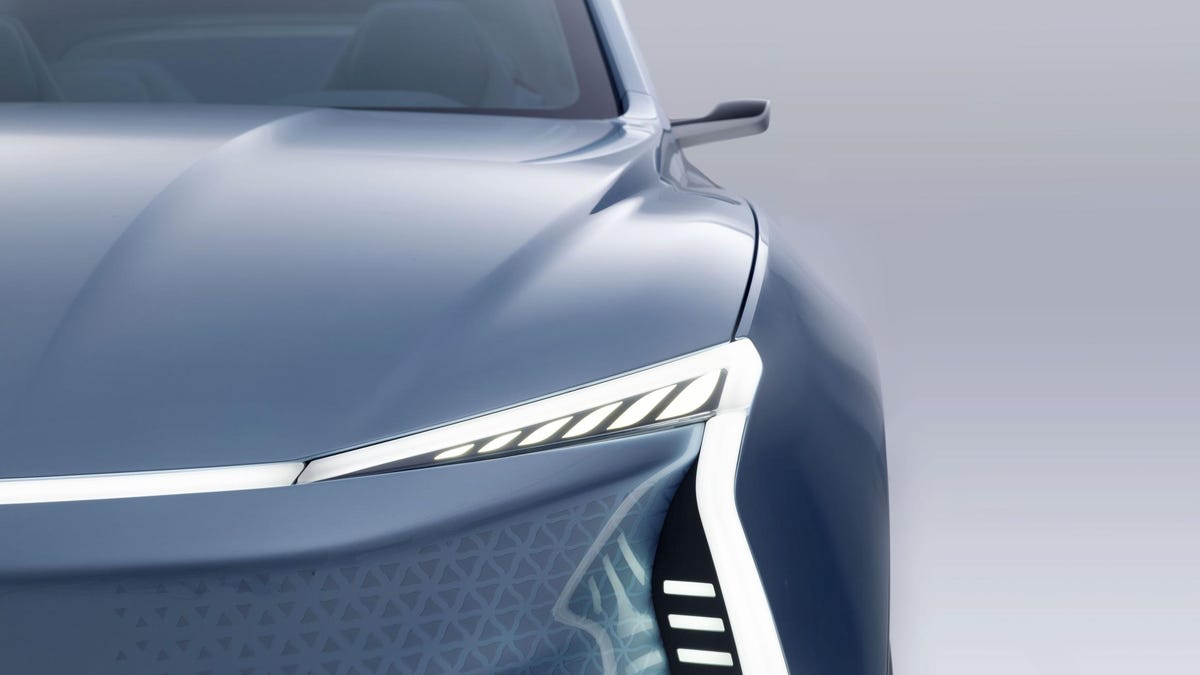Meet SF Motors, the latest Tesla killer
SF Motors promises high-end EVs, not high-end vapor.

SF Motors came out of a two-year skunkworks phase today to show off two new cars and a rather unique view of what an electric car company should be.
Its SF5 and SF7 models are crossovers in traditional automotive lingo, but that word seems ill-fitting for origin products that have crossed over from nothing. They are "coupe UVs" thanks to a fastback roof line merged with size that offers utility. Both are two-row arrangements with four doors that operate on normal hinges, but in opposition to create an entirely open side. The SF5 arrives first with preorders in late 2018, followed by the larger SF7 in 2019. Prices are yet to be announced.
Powertrain specs will range up to 1,000 horsepower with a 0-60 time of three seconds. That kind of performance will be one of the company's headlines, even in a world with a surfeit of three-second cars. Power is delivered by either two, three or four motors thanks to a platform that has been designed from the start to accommodate those configurations. With the four-motor option and all-wheel steering, the vehicles achieve the holy grail of independent power, steering and suspension.
Range is expected to be 300 miles, which is very good, but doesn't till any new ground. Since range anxiety remains a gulf between the 1 percent who are EV buyers and the 99 percent who are not, SF Motors will likely offer a range extender option to generate electric power while driving via an optimized combustion engine generator. The Chevy Volt popularized that architecture while the BMW i3 showed that it can also be unpopular.
Things should get more interesting down the road thanks to SF Motors' recent acquisition of EV battery startup InEVit and its founder, Martin Eberhard, one of Tesla's original founders. He is now SF Motors' Chief Innovation Officer, focusing on the thorny issues of battery size, cooling, energy density and complexity of installation across diverse car models.
The cabin design of the vehicles speaks to glass: a dramatic T-bar dash is almost one contiguous glass surface while the panoramic roof overhead seems to meet it at the generous windshield.
More crystal than a Lalique store: The pano roof, big windshield and contiguous display that makes up the dash are striking.
Autonomy is the other half of any premium EV story and SF Motors suggest it was already positioned for a post-Tempe world where self-driving cars will be viewed through the lens of danger. The company calls its self-driving tech "protective autonomy" aimed more at safety than allowing you to scroll Facebook on the highway, a concept that echoes Toyota's Guardian technology. It has been in testing on development mules in Michigan, California and China.
SF Motors is in a suddenly dense pack of Tesla challengers that include Byton, Faraday, Nio and Lucid. How well it stands out from them will be as important as pricing the product deftly and manufacturing it at scale.

